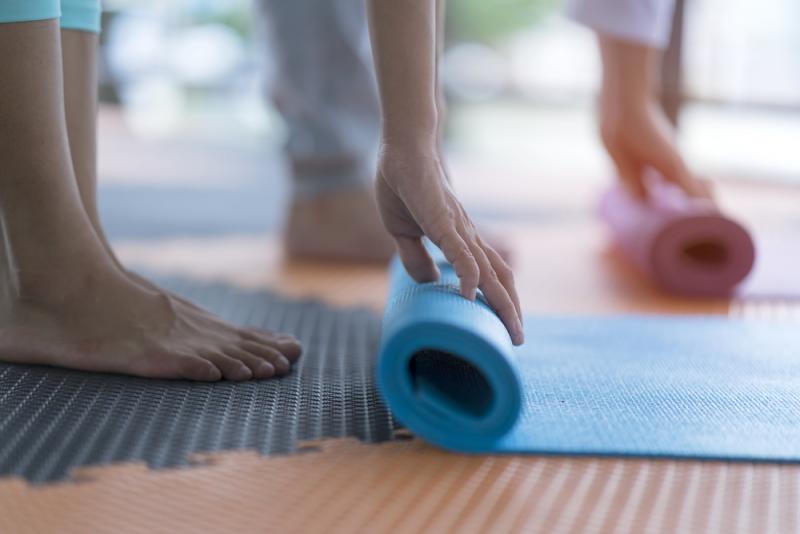The 30/30/30 morning routine is a science-backed weight loss method. It involves eating 30 grams (g) of protein within the first 30 minutes of waking up and following it up with 30 minutes of exercise.
This method was first proposed by Timothy Ferriss in his book “The 4-Hour Body,” but was made popular by biologist Gary Brecka on TikTok. Brecka claimed it can help you lose weight and get control over your blood sugar and insulin levels.
How Does the 30/30/30 Method Work?
With the 30/30/30 method, you consume 30 g of protein within the first 30 minutes of being awake. Carbohydrates and fats can be included, too, but the most important part is making sure your breakfast has about 30 g of protein.
The next step is getting in 30 minutes of exercise. It is recommended that you do steady-state cardiovascular exercise. This means low-intensity cardio exercises that get your heart rate up a little, but not too much, like walking or leisure bike riding. The goal is to keep your heart rate at, or below, 135 beats per minute (bpm). A good rule of thumb is if you can carry on a conversation while jogging or biking, you’re probably at or below 135 bpm.
What Do Experts Say?
“There is ample scientific evidence that consuming more protein, especially at breakfast, can help reduce calorie consumption throughout the rest of the day, as protein helps you feel fuller for longer,” Josten Fish, a registered dietitian, told Health.
Research shows that consuming more protein (but the same number of calories) can promote faster weight loss. Additionally, “eating an adequate protein-rich breakfast can help stabilize blood sugar and combat insulin resistance, a cause for stubborn weight loss,” Michelle Routhenstein, a registered dietitian nutritionist and cardiology dietitian with Entirely Nourished, told Health.
Steady-state cardiovascular exercise makes you limber, strengthens your bones, helps you control your weight, and has many other benefits. And there’s evidence that steady-state cardio, in particular, may help you burn more body fat.
How To Do the 30/30/30 Method
These are the steps to do the 30/30/30 morning routine correctly.
Step One: Eat 30 Grams of Protein
Eat 30 g of protein within 30 minutes of waking up in the morning. It can help to have your breakfast prepped the night before. You should be able to hit your goal with meals such as:
- A fruit smoothie made with protein powder
- Cottage cheese with pineapple
- Greek yogurt topped with nuts
- High protein bread topped with nut butter or eggs and cheese
- Quinoa topped with tofu, eggs, beans, or cheese
- Three scrambled eggs, topped with cheese
Step Two: Exercise for 30 Minutes
Have your exercise clothes ready and plan out which type of exercise you’ll do in the morning. The focus is on cardiovascular exercise, not strength training. You’ll want to exercise hard enough that you feel like your heart is beating faster but not so hard that you can’t carry on a conversation.
Here are some ideas that should get your heart rate into the correct zone:
- Go jogging
- Swim laps in a pool
- Take a leisurely bike ride
- Turn on some music and dance
- Use a cardio machine at the gym, like the stair stepper or elliptical
- Walk either on a treadmill or through your neighborhood
Potential Benefits of the 30/30/30 Method
The 30/30/30 method aims to burn body fat instead of lean muscle. Getting your heart pumping above your resting heart rate improves or maintains your fitness and promotes burning body fat.
Consuming protein at breakfast can also support that fat-burning goal. “By consuming 30 grams of protein within the first 30 minutes of waking up, individuals can jumpstart their metabolism and provide their bodies with essential nutrients,” said Fish. “A protein-rich breakfast can help control appetite and regulate blood sugar levels.”
A 2021 study found that combining eating more protein with cardiovascular exercise resulted in less body fat, lower cholesterol, reduced inflammation, and improved insulin sensitivity.
Potential Risks and Considerations
While cardio exercise early in the morning has benefits, exercise at any time of day is beneficial. High-intensity workouts burn carbs before body fat, but your metabolism will stay higher for longer after the workout, burning body fat later. This is known as the after-burn effect. So, whichever type of exercise you choose, you will ultimately burn body fat.
Optimizing Your Insulin Levels
How high your insulin levels are may impact how you lose fat. Insulin is your body’s fat storage hormone. It allows your body’s cells to use sugar and other carbs for energy or fat storage. When your carbohydrate intake is high, your insulin levels will also be high, which means your body is using carbs for energy instead of its own fat reserves. To ensure you are burning body fat, consider lowering your carbohydrate intake.
Timing Your Breakfast
Another consideration is that not all people are hungry right when they wake up. You may not necessarily want to force yourself to eat if you’re not hungry. Fish recommended eating 20-30 grams of protein per meal. “While I don’t think it’s necessary to eat immediately after waking, I do suggest intuitively eating within the first hour and don’t find it harmful to aim to eat in the first 30 minutes,” said Fish.
Additionally, some people may experience digestive issues if they eat close to working out. “If that’s the case for you, adjusting to having the protein shake after you work out may be a better option,” added Routhenstein.
A Quick Review
The 30/30/30 is a weight loss method that involves eating 30 g of protein within the first 30 minutes of your day and following it with 30 minutes of light exercise.
This morning routine is rooted in sound science, and it could be a good way to increase your capacity to burn fat while keeping lean muscle. “The 30/30/30’s combination of nutrition and exercise could be a powerful tool for those seeking to improve their overall health, energy levels, and productivity from the moment they rise,” said Fish.



